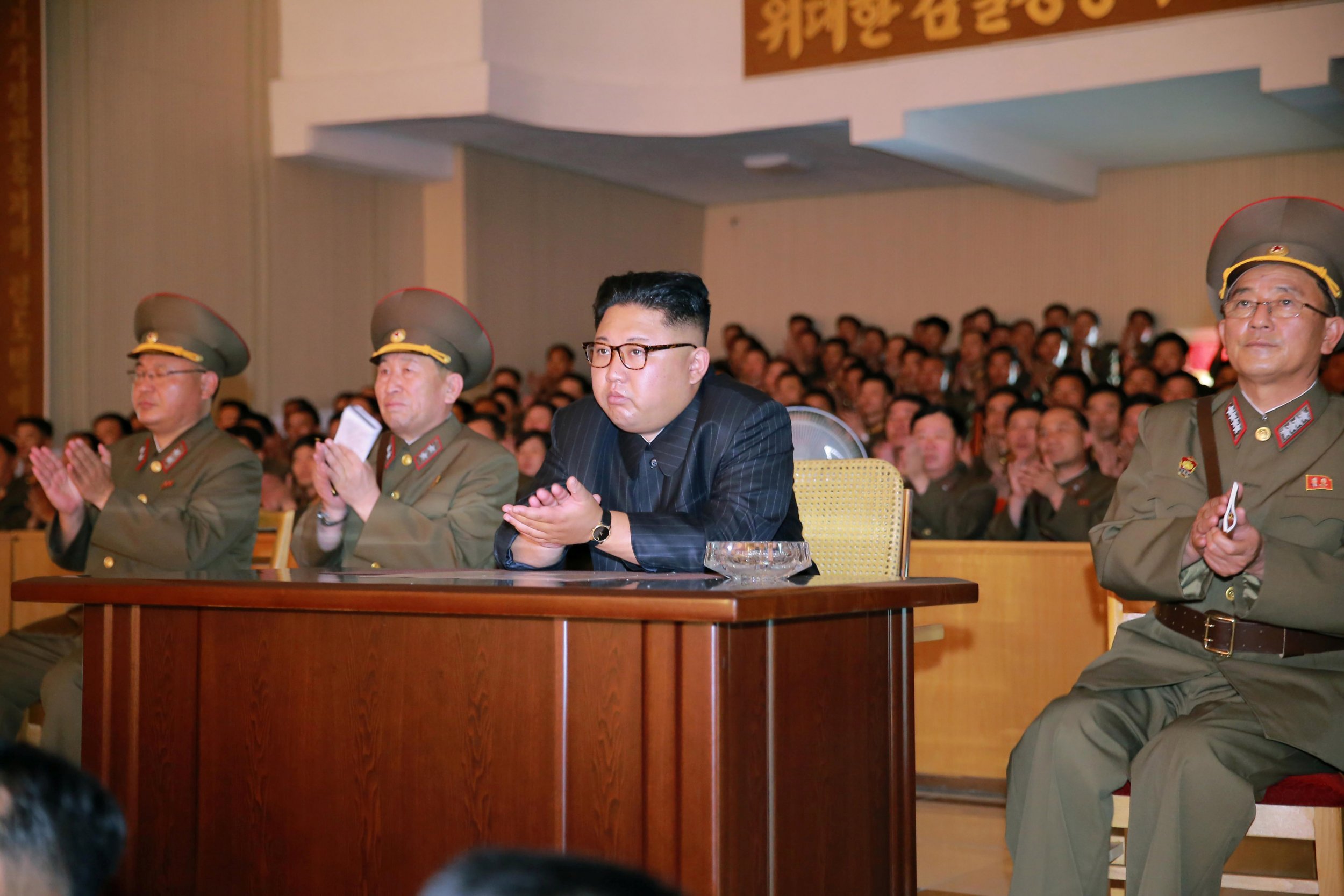
Newsweek published this story under the headline of "The Mind of Pyongyang" on August 18, 1997. Due to a further deteriorating relationship between the United States and North Korea relationship 20 years later, Newsweek is republishing the story.
AS A BIG-POWER PATRON OF North Korea, the Soviet Union had unusually close insight into the shuttered Pyongyang regime. Alexandre Mansourov was a Soviet diplomat in Pyongyang from 1987 to 1989, and a student at Kim Il Sung University. He is now a research fellow at Columbia University in New York, where talks among the major combatants in the Korean War began last week. He spoke to NEWSWEEK'S Tony Emerson. Excerpts:
Are the North Koreans serious about peace?
Yes, this time I'm sure they are serious. The prime motivation is to ensure the survival of the state itself. They see these talks as the only guarantee that, if they gain political recognition from the United States, South Korea will not swallow them up.
What about all their promises to unify Korea under the glorious vision of socialism?
They're pragmatic. They've been in the United Nations with the South since 1991, offering de facto recognition to South Korea. They'll just readjust their propaganda.
Readjust? My Impression is that they're constantly refighting the Korean War.
The Korean War indeed has been refought constantly in the North Korean public mind. As long as this regime is in power, they will continue to derive legitimacy from the so-called victory in the Korean War. But the "Great Leader," Kim II Sung, with all his accomplishments, failed to sign a peace treaty. If his son Kim Jong Il is able to say, "I brought peace home," it will give him tremendous legitimacy. He could say he's done something even his father hasn't done.
Is Kim close to taking his father's posts as president and party leader?
I have a rather unusual piece of news. A Russian -- I can't say who -- just received an official invitation to the Inaugural event. There's no indication of a date yet. But they requested that he set aside his free time in October. Ten other people in Russia received the same invitation. This is the first credible sign that they are planning the Inauguration of Kim Jong Il as president.
How important is that?
To some extent it's irrelevant. The key post is his position as the Great Leader. But one reason for the delay of his Inauguration is that he is supposed to address the nation, unleash the new era. One North Korean official admitted they wasted three years, failing to put together this new package, telling the nation what Kim Jong Il is all about. In June a delegation from the Russian state Duma to Pyongyang were told that a "market oriented" package is under consideration -- of course, North Korean style. They want to introduce convertible currency without free markets or prices. They're not ready yet to go all the way with reform. The plan includes "corporatization" of currently unused industrial facilities, with Russian management. That means they would issue stock to management and employees, and allow them to sell it to institutional investors.
Does this amount to real reform?
The paradox of North Korea is foreign-policy reform and domestic-policy stagnation. In three or four years, they've come far in relations with the United States -- getting nuclear power, for God's sake, from the enemy! We're talking about confidence building, economic aid, humanitarian aid. This foreign policy can be described as pretty constructive and active for a so-called rogue state that's usually invisible except for terrorism. On the other hand, we hear about domestic-policy disputes but see few changes in economic or social policy despite great economic distress. Trying to explain this paradox, what comes to mind is the Soviet and Chinese model: they started by reforming their foreign policy.
One week North Korea is invading the DMZ, the next it is agreeing to respect the armistice -- how does this square with a pragmatic foreign policy?
In my mind -- maybe I have a twisted mind, too -- it squares perfectly. You want everyone constantly to take you seriously. Because if they stop taking you seriously, they will see you not even as a rogue state but as a beggar. Your bargaining leverage will decline. They will continue to remind everybody that they can be a nuisance.
On domestic stagnation -- what about reports of black markets and the breakdown of internal travel controls in response to the famine?
The central government is losing a degree of control, but you have to understand how their propaganda works. They've been preaching juche -- self-reliance -- for 40 years. If anything, what's happening now in terms of increasing decentralization is presented as the ultimate implementation of juche. It's not a serious threat to central control.
Do you see any prospect of a quick break-through in the talks, so Kim Jong II can present peace at his Inauguration?
The Agreed Framework (in which North Korea traded nuclear-weapons capability for new nuclear-energy plants) was signed basically overnight. The meaningful discussion started in August (1994), and in October they signed the deal. Everyone knows what's supposed to be in this treaty; it's just horse trading now. The closer we are to the unleashing of the new era of Kim Jong Il -- it could be October, it could be later -- the more pragmatic they will become, and the more likely they are to close their eyes and accept things they don't like.
Uncommon Knowledge
Newsweek is committed to challenging conventional wisdom and finding connections in the search for common ground.
Newsweek is committed to challenging conventional wisdom and finding connections in the search for common ground.
About the writer
To read how Newsweek uses AI as a newsroom tool, Click here.








